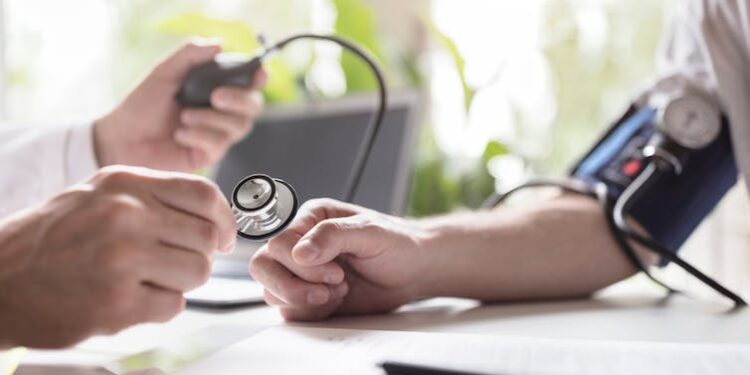Josie (not her real name) has bulimia. She is prescribed steroids to manage a lung condition and heart failure and has gained a significant amount of weight as a result of using the drugs. Her body mass index (BMI) is over 35, which is in the obesity range. She was referred to the Community Mental Health Team because she had returned to her GP, concerned about her low mood, anxiety and difficulty walking.
Josie saw the team physiotherapist because she was at risk of having a fall and was avoiding leaving the house. She was also assessed by a clinical psychologist – a specialist in eating disorders. The psychologist asked Josie about her weight, shape and eating concerns. This was the first time her eating disorder has been diagnosed despite years of fasting, binge eating, and using diet pills and laxatives.
Josie is 69 years old. She is a member of the invisible population of older adults with an eating disorder.
She was sexually and physically abused in her early life and hated how big she felt when around others – particularly men.
Josie had been taking laxatives since she was 19 and kept her BMI between 23 and 27, that is, between a healthy weight and overweight. She had sought help from her GP many times but was told that the local eating disorder service only accepted people with a BMI below 17. Josie was told that she was “too big” to get help.
Now she is desperate about the lack of control she has in regulating her weight and has resorted to eating just one meal a day. She perceives her symptoms of water retention and stomach bloating as fat and so she has started restricting her eating again, which then triggers binge eating.
Josie told the psychologist that she is now avoiding taking steroids because she is worried about putting on weight. She also worries about being judged and won’t leave the house for fear that the neighbours will see how “big” she has become.
Not recognised
When Josie’s symptoms began in the early 1970s, eating disorders were not commonly recognised and treatment was in its infancy. Talk therapy for common mental health problems and trauma was also rarely available in the NHS.
Bulimia nervosa was not recognised as a mental health disorder until 1980 when it gained an entry in the third edition of the “psychiatrists’ bible”: the Diagnostic and Statistical Manual III (DSM-III).
In the 1950s and 60s, during Josie’s formative years, people’s views of mental health were very different to now, and so were the ways of dealing with psychological distress.
This, paired with our tendency to make assumptions about people over a certain age, that they won’t experience eating disorders and that the focus of discussions and consultations with doctors will be on physical health rather than mental health, means older people with eating disorders are not noticed, diagnosed or treated.
Since Josie’s early experience, and even in the years since eating disorders were taken seriously, the diagnostic criteria for eating disorders have improved, but progress has been slow. For example, the need for the absence of menstruation to fulfil the diagnostic criteria for anorexia remained in place as late as 2013 (DSM-V).

Brian A Jackson/Shutterstock
Ageism
New diagnostic criteria have broadened since DSM-V, but we still don’t hear about eating disorders in older people. Ageism may be at the centre of this.
Research into eating disorders tends to exclude older people. Researchers looking to study interventions for people with eating disorders tend to recruit participants from social media or from eating disorder clinics – meaning older adults are largely ignored. Consequently, guidelines for interventions are based on evidence for what works in a younger cohort.
The most common eating disorders are binge-eating disorder, bulimia and anorexia. There is very little research on eating disorders in people over 50. These disorders are not routinely screened in general practice and therefore not reported in NHS data.
Older people with eating disorders are likely to fall into one of three groups. One, people like Josie with a long-standing eating disorder (one that has probably never been treated). Two, people who have had a relapse of a prior eating disorder. And three, people who have developed a problem later in life.
Eating disorders are linked to cardiovascular disease and osteoporosis, among other health problems. Screening and treating these disorders can prevent these long-term effects and ultimately save the NHS significant time and money. Surely, as a minimum, people like Josie should not be discriminated against because they were born in the wrong era or because their BMI is “not low enough”.
Josie is Suzanne’s patient
![]()
The authors do not work for, consult, own shares in or receive funding from any company or organisation that would benefit from this article, and have disclosed no relevant affiliations beyond their academic appointment.

























